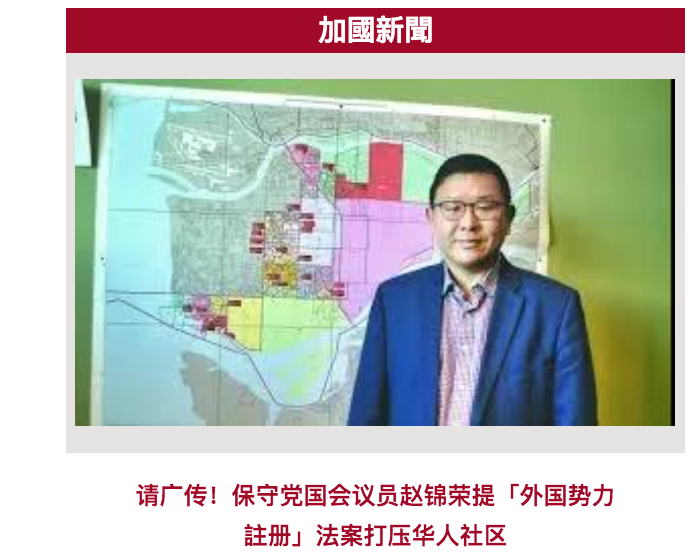Just days before the federal election, CSIS, Canada’s spy agency, approached incumbent Steveston-Richmond East candidate Kenny Chiu.
While he can’t reveal what the discussion was about, Chiu has been raising concerns about influence from pro-Chinese government supporters on Monday’s federal election and misinformation about his parliamentary bill to register those, acting for a foreign agency, who lobby in Canada.
Chiu said his post-election complaints aren’t “sour grapes” and he is supportive of the Liberals’ Parm Bains, who beat him in the election by more than 3,000 votes.
But he questions the misinformation and “lies” he saw circulating on WeChat before the election, while acknowledging there were many factors that led to his defeat.
Chiu pointed out data is showing a collapse of support for Conservatives in the Greater Toronto Area (GTA) and the Lower Mainland where there were high concentrations of voters of Chinese origin, calling it an “unusual decline of votes.”
This was the situation in Richmond Centre where his Conservative counter-part Alice Wong saw her support collapse by 8,000 votes (mail-in ballots are still being counted, so this figure is preliminary).
Searching through WeChat, the Richmond News found a plethora of posts discouraging people from voting for Chiu and the Conservatives and repeating the message that he's "anti-Chinese."
Chiu said the misinformation about the intent of his bill isn’t a “smoking gun” but it shows a pattern.
A message circulating on WeChat before the election, found by Chiu’s campaign, states “Chiu’s anti-China background, it’s no doubt that this bill is against mainland Chinese organizations or friendship societies.”
Another post read “The purpose (of Chiu’s bill) is to curb any pro-Chinese speech in Canada, and to control and monitor various mainland groups and individuals.”
One article written after the election, that got more than 20,000 views on WeChat, stated “If they get elected, it might stimulate various social organizations and groups to organize crimes against Chinese people. It would be catastrophic for Chinese Canadians.”
The point of Bill C-282 that Chiu introduced as a private member's bill, but which died in Parliament when Justin Trudeau called the election, was that if someone under the direction of a foreign government or agency lobbies the government, they need to register openly.
“I’m not saying don’t (lobby), but just register,” Chiu said.
But this message got twisted in Chinese-language social media to say if Chiu were re-elected, all Chinese-Canadians with connections to China would be in trouble and have to register themselves.
“It’s playing into the narrative of Communist Chinese – that anti-Asian racism is because of the criticism of China and therefore, if you don’t want to be discriminated against and hated, you have to ask your government to not to keep on criticizing China,” Chiu said.
“The false message, the disinformation, the fake news was being brewed not just in WeChat, the semi-autonomous media, but also been repeated in our airwaves in some of the Cantonese-Mandarin commentators,” Chiu added.
He said it’s the same song sheet, saying Chiu is anti-Chinese, criticizing his vote in the House of Commons about the Uyghur genocide and spreading lies about Conservative leader Erin O’Toole, saying he will ban WeChat.
“It plays into the whole narrative – it plays into people’s fears, it plays into the deep hurt of being discriminated (against), of being yelled at, spat at, during the pandemic,” Chiu said. He added Conservatives have consistently condemned racism, however, “ironically, we’re the ones that get the blame.”
Even after the election, Chiu said there’s been “jubilation” in chat rooms by those supportive of the Beijing regime.
“They are very excited and they are seeing there’s a breakthrough that will allow them to exert more influence in our Canadian politics,” Chiu said.

.jpg;w=120;h=80;mode=crop)

